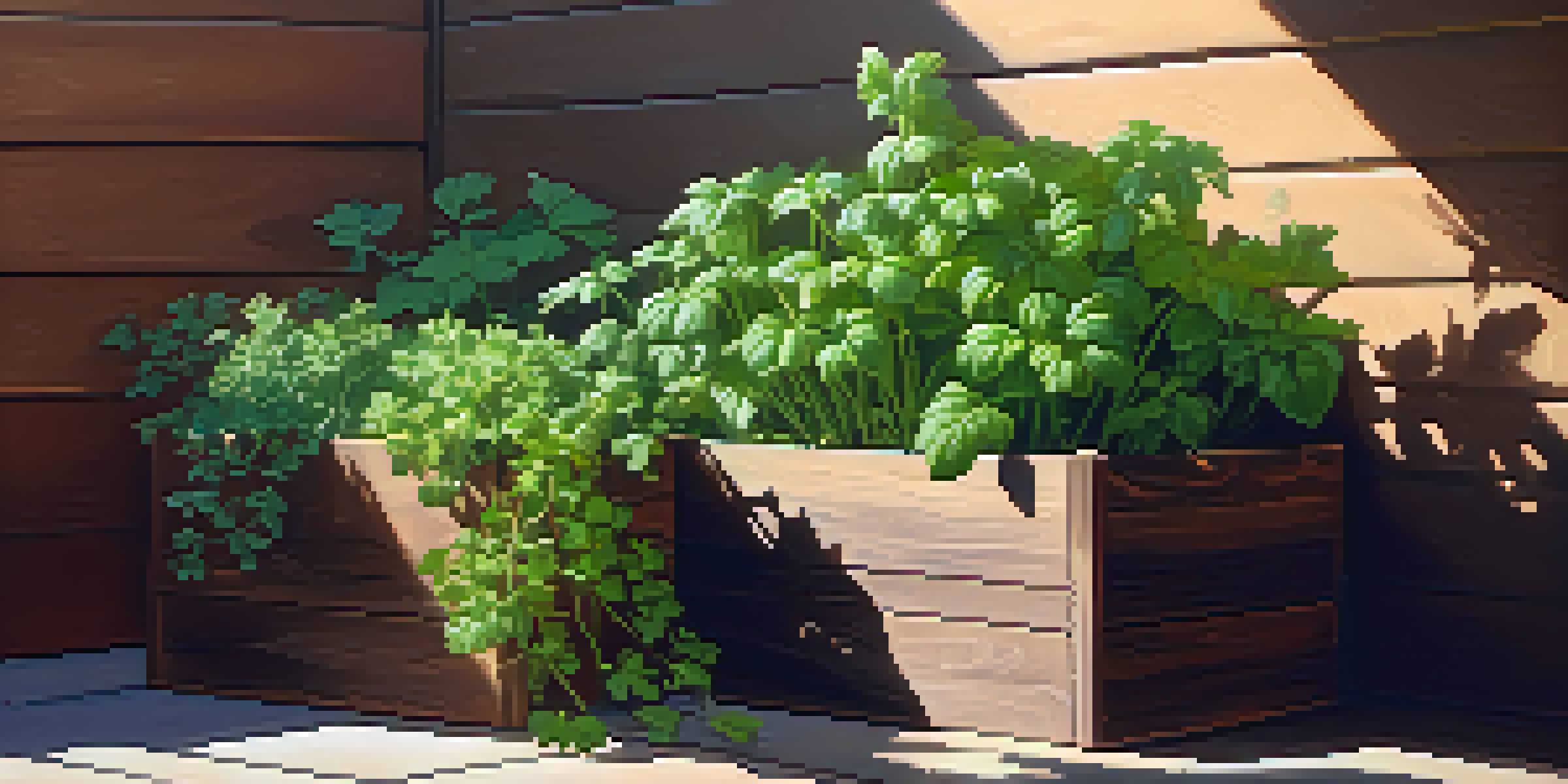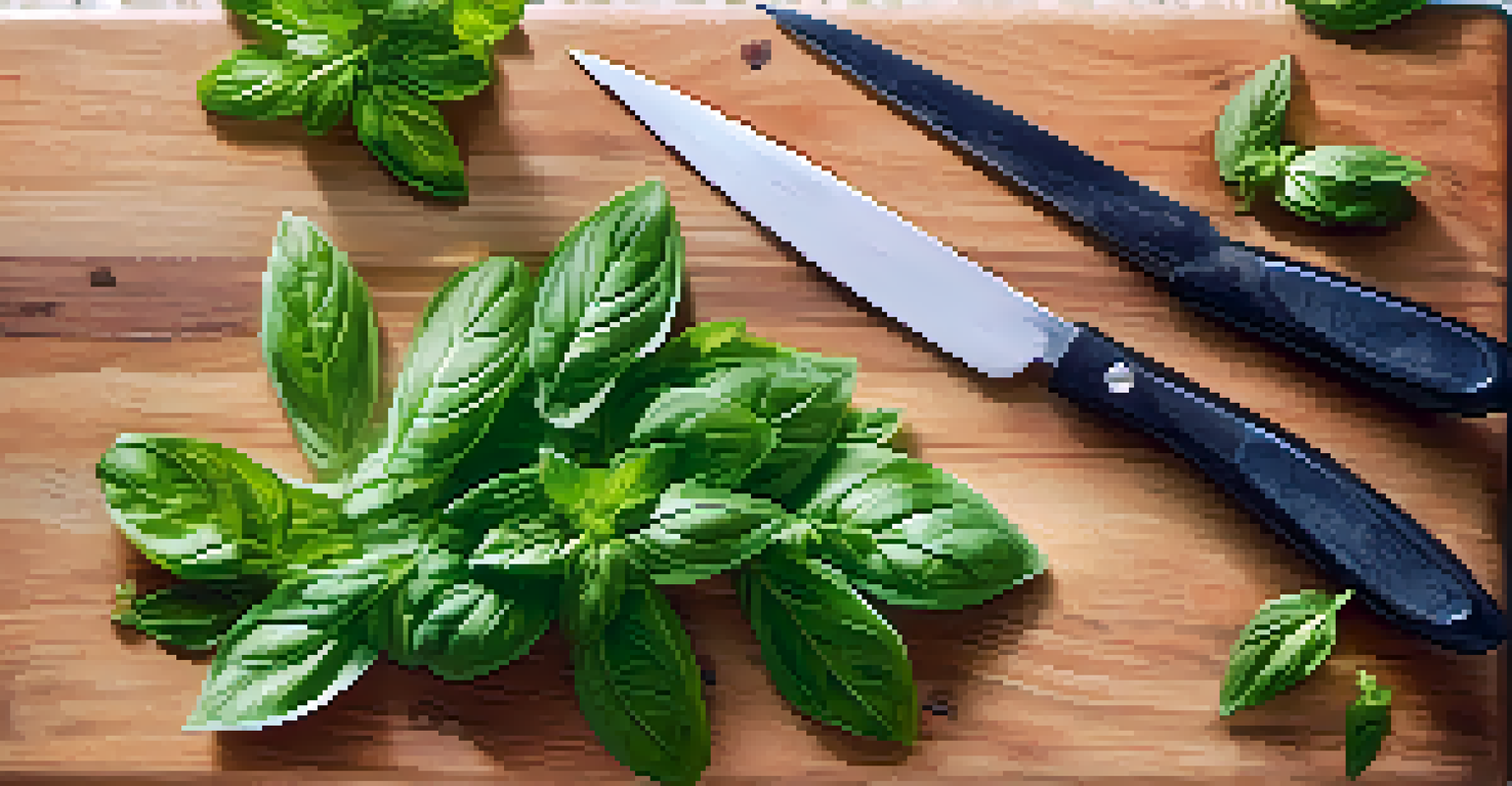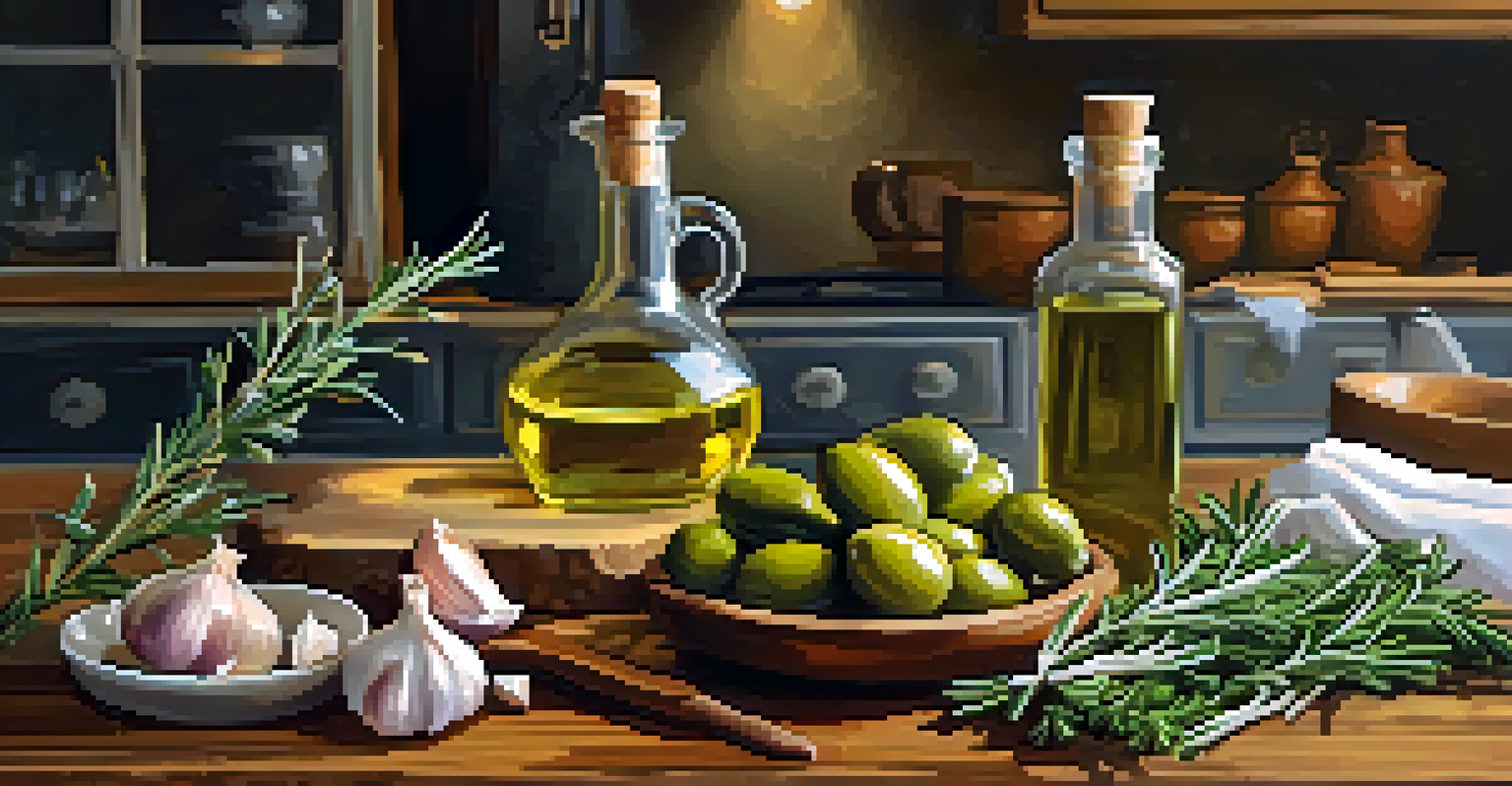Herb Gardening: Grow Fresh Herbs for Flavor and Health Benefits

Understanding the Benefits of Herb Gardening
Herb gardening offers a multitude of benefits, both for the palate and your health. Fresh herbs can elevate any dish, adding layers of flavor that dried spices simply can’t match. Beyond enhancing meals, many herbs are packed with nutrients and antioxidants, contributing to overall wellness.
Herbs are the easiest plants to grow and can enhance any meal with their flavor and freshness.
For instance, basil is not only a staple in Italian cooking but also boasts anti-inflammatory properties. Similarly, rosemary can improve digestion and memory. By growing your own herbs, you can ensure you're getting the freshest ingredients while also reaping the health benefits they provide.
Additionally, cultivating herbs can be a therapeutic activity. Spending time in nature, nurturing plants, and watching them grow can reduce stress and promote mental well-being. So, whether you're an aspiring chef or someone looking to boost your health, herb gardening is a rewarding endeavor.
Choosing the Right Herbs for Your Garden
When starting your herb garden, it's essential to choose herbs that suit your culinary preferences and growing conditions. Popular options like basil, parsley, and cilantro are great for beginners and can be used in a variety of dishes. Consider your cooking style—if you love Italian cuisine, you might want to prioritize herbs like oregano and thyme.

Think about your growing environment as well. Some herbs thrive in full sunlight, while others prefer partial shade. For instance, mint can flourish in less sunny spots, making it a versatile addition to your garden. Assess your garden space and sunlight exposure to ensure your herbs will thrive.
Herbs Boost Flavor and Health
Growing herbs not only enhances the taste of your dishes but also provides numerous health benefits packed with nutrients.
Don’t forget to consider the seasons; some herbs are annuals and need to be replanted each year, while others are perennials that come back season after season. By selecting a mix of both, you can enjoy fresh herbs year-round, thereby maximizing your garden’s potential.
Preparing Your Garden Space for Herbs
Creating a suitable environment for your herbs is crucial for their growth. Start by selecting a location that receives adequate sunlight—most herbs require at least 6 hours of sunlight daily. If you're gardening in a small space, consider using pots or vertical planters to maximize your area.
Gardening adds years to your life and life to your years.
Next, ensure the soil is well-draining and rich in nutrients. You can enhance your garden’s soil by mixing in organic compost, which provides the necessary nutrients that help herbs thrive. Testing the soil pH is also a good idea, as most herbs prefer a slightly acidic to neutral pH level.
Lastly, don't forget to plan for watering. Herbs typically prefer consistent moisture but can be sensitive to overwatering. Establishing a regular watering schedule will help maintain the ideal conditions for your herbs to flourish.
Planting Techniques for Healthy Herb Growth
When it comes to planting your herbs, proper techniques can make all the difference. Start by following the recommended spacing guidelines on seed packets, as overcrowding can lead to poor air circulation and disease. Planting seeds or seedlings in rows or clusters can also make harvesting easier later on.
If you're starting from seeds, it's important to plant them at the right depth. Generally, smaller seeds require less soil coverage than larger ones. For example, basil seeds should be sown about 1/4 inch deep, while larger herb seeds, like dill, can be planted slightly deeper.
Select Herbs for Your Needs
Choosing the right herbs based on your cooking style and growing conditions ensures a thriving garden and flavorful meals.
Once planted, gently water the area to keep the soil moist but not soggy. As the herbs begin to grow, thin out the seedlings if they become too crowded, allowing the strongest plants to flourish. This practice promotes healthy growth and ensures your herbs have enough space to develop properly.
Caring for Your Herbs: Watering and Fertilizing
Caring for your herbs involves regular watering and occasional fertilization to keep them healthy and productive. It's important to check the soil moisture frequently; herbs generally prefer to dry out a bit between waterings. Overwatering can lead to root rot, so it's essential to find a balance.
Fertilizing can enhance growth, particularly if your soil lacks nutrients. An organic fertilizer, such as fish emulsion or compost tea, can be beneficial. It's advisable to fertilize every 4-6 weeks during the growing season, following the manufacturer's instructions to avoid over-fertilization.
Additionally, keep an eye out for pests and diseases. Regularly inspect your plants for any signs of trouble, such as yellowing leaves or unusual spots. Address issues promptly to prevent them from spreading and affecting your entire garden.
Harvesting Your Herbs for Maximum Flavor
One of the most rewarding parts of herb gardening is the harvesting process. The best time to harvest herbs is just before they bloom, as this is when their flavor is at its peak. Use clean, sharp scissors or pruning shears to snip off the leaves, ensuring you don't damage the plant.
For many herbs, like basil and mint, regular harvesting encourages bushier growth. As you harvest, try to leave enough leaves on the plant for it to continue growing. This practice not only benefits the plant but also ensures you have a steady supply of fresh herbs.
Harvest and Use Herbs Wisely
Proper harvesting techniques and creative culinary uses can maximize the flavor and longevity of your homegrown herbs.
Don’t forget that some herbs can be dried or preserved for later use. If you have an abundant harvest, consider drying them in a cool, dark place or freezing them in ice cube trays with a bit of water. This way, you can enjoy your homegrown herbs long after the growing season has ended.
Exploring Culinary Uses for Fresh Herbs
Fresh herbs can transform a dish from ordinary to extraordinary, adding depth and flavor that dried herbs simply can't match. For example, a sprinkle of fresh cilantro can brighten up a taco, while a handful of basil can elevate a simple pasta dish. Experimenting with different herbs can open up a world of culinary possibilities.
You can also use herbs to create flavorful oils or vinegars. Infusing olive oil with garlic and rosemary can enhance your cooking or serve as a delightful dressing for salads. Similarly, herb-infused vinegars can add a unique twist to your homemade dressings and marinades.

Lastly, don’t overlook the potential of herbs in beverages. Fresh mint can add a refreshing element to iced tea or cocktails, while basil can give a unique taste to smoothies or juices. The versatility of herbs means there's always a new way to enjoy them in your meals and drinks.